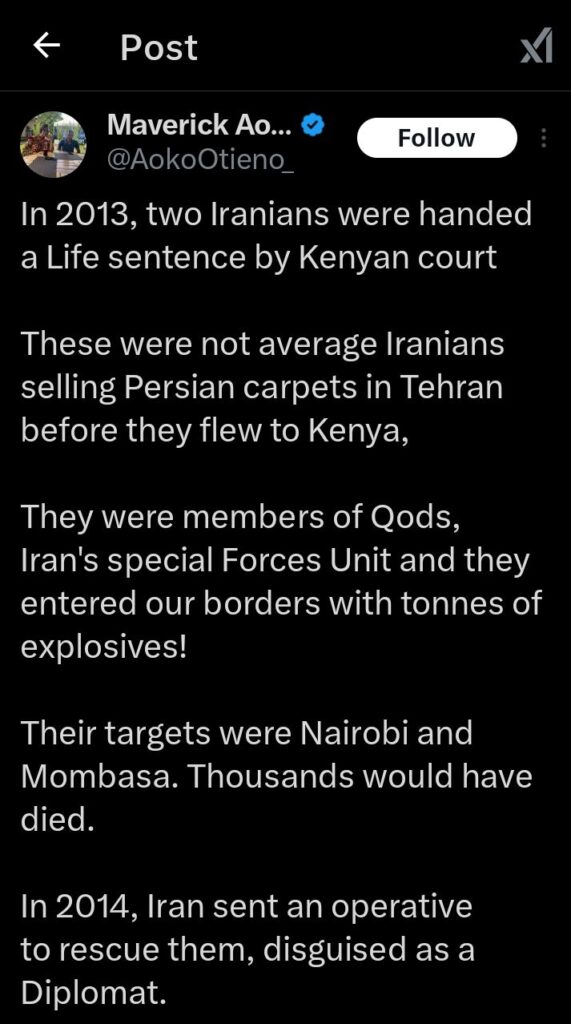As revealed by blogger and media personality Maverick Aoko, Kenya has been embroiled in controversies surrounding suspicious operations, alleged cover-ups, and unaddressed questions about justice and national security.
In a shocking revelation, Aoko details the events surrounding the release of two Iranian nationals convicted of terrorism in 2013.

These were not ordinary individuals but operatives from Iran’s Quds Force, known for executing sensitive missions for the Islamic Revolutionary Guard Corps.
They were caught with 15 kilograms of RDX explosives, allegedly intended for attacks in Nairobi and Mombasa.
Had their plans succeeded, the loss of life would have been catastrophic.
In 2014, Aoko alleges that Iran went to extreme lengths to secure their release.
An Iranian operative, disguised as a diplomat, was reportedly sent to Kenya on a mission to rescue the imprisoned convicts.
However, Interpol alerted Kenyan authorities, and the plan was thwarted.
Despite this, Aoko claims that corruption within Kenya’s judiciary allowed the Iranians to have their sentences reduced from life imprisonment to 15 years.
Fast forward to 2022, the timeline become more perplexing.
By the time of the 2022 general election, the convicts were still serving their reduced sentences at Kamiti Maximum Security Prison, with only five years remaining.
However, mere days after the Supreme Court upheld William Ruto’s presidential win on September 5, 2022, the two Iranians were reportedly released under mysterious circumstances on September 9.
Aoko raises further questions about a possible connection to a trip involving Ahmednasir, who was seen in Dubai alongside Mohammed Wehliye on September 23, just two weeks after the convicts’ release.
While the purpose of their trip remains unclear, Aoko suggests that it could be tied to a potential deal or “appreciation” linked to the Iranians’ release.
These claims, paint a troubling picture of Kenya’s justice system and the influence of international forces on its sovereignty.
They highlight the alleged involvement of high-ranking officials in secretive deals that could compromise national security.
Aoko’s account calls for greater transparency and accountability from those in power, as well as a full investigation into the events surrounding the Iranians’ release and the possible diplomatic undertones.
If Kenya is to uphold justice and protect its citizens, such incidents cannot remain shrouded in mystery.
They demand answers, action, and a commitment to integrity in governance.
